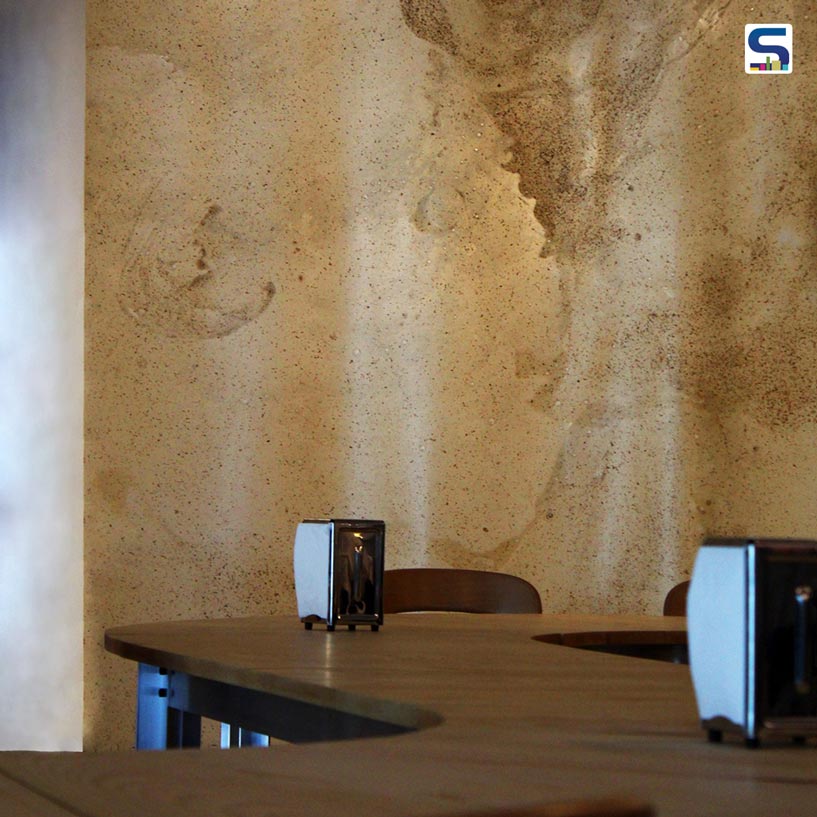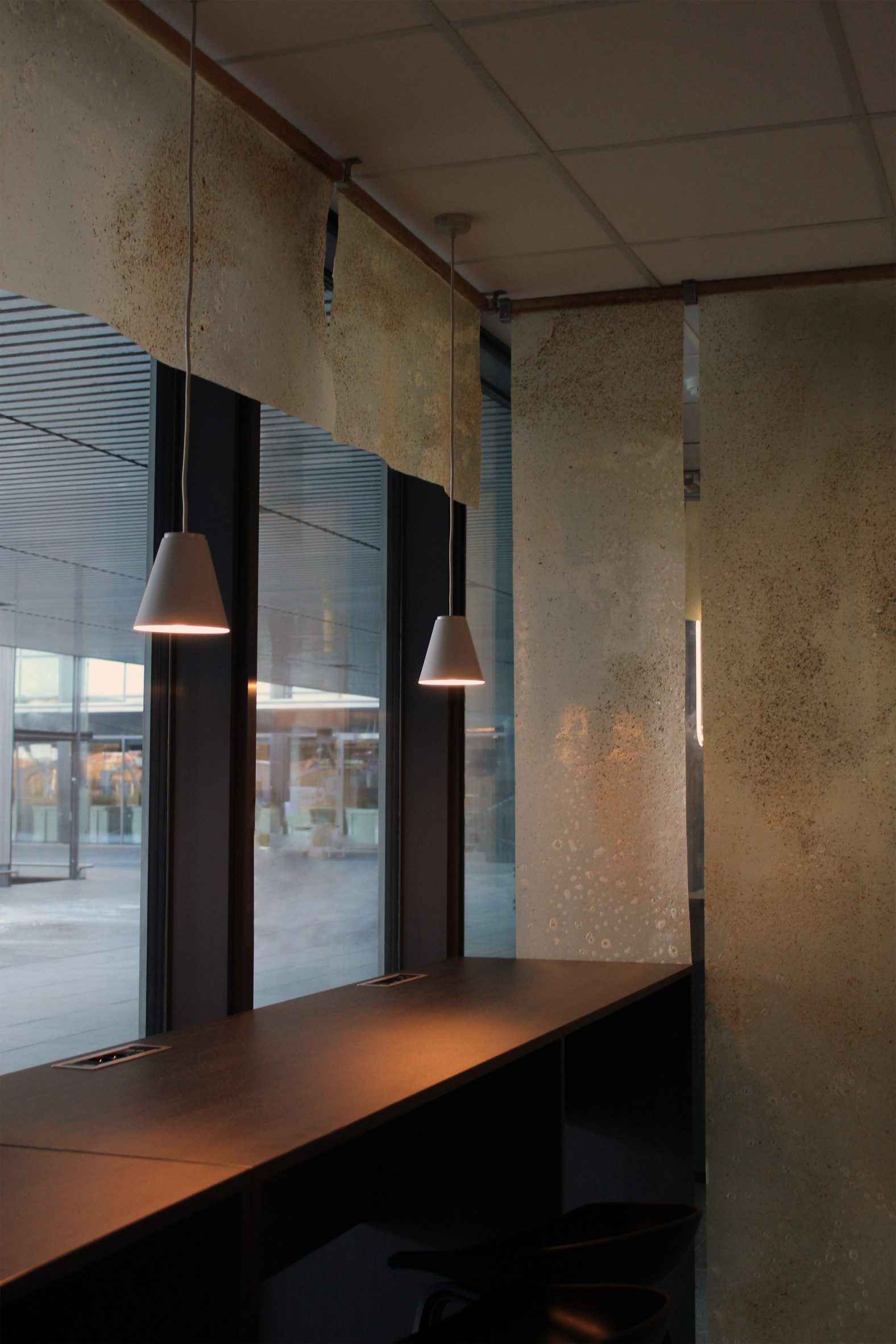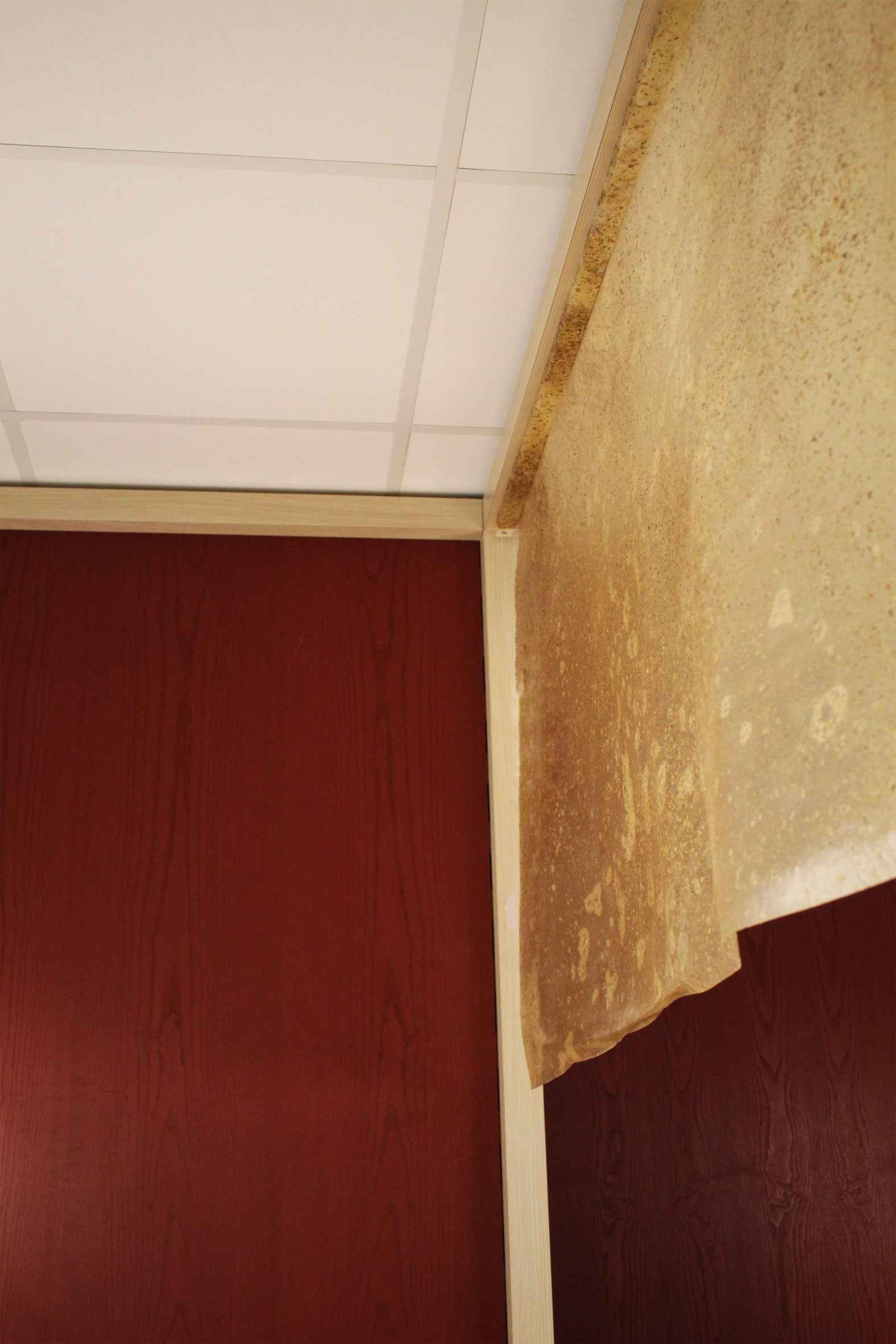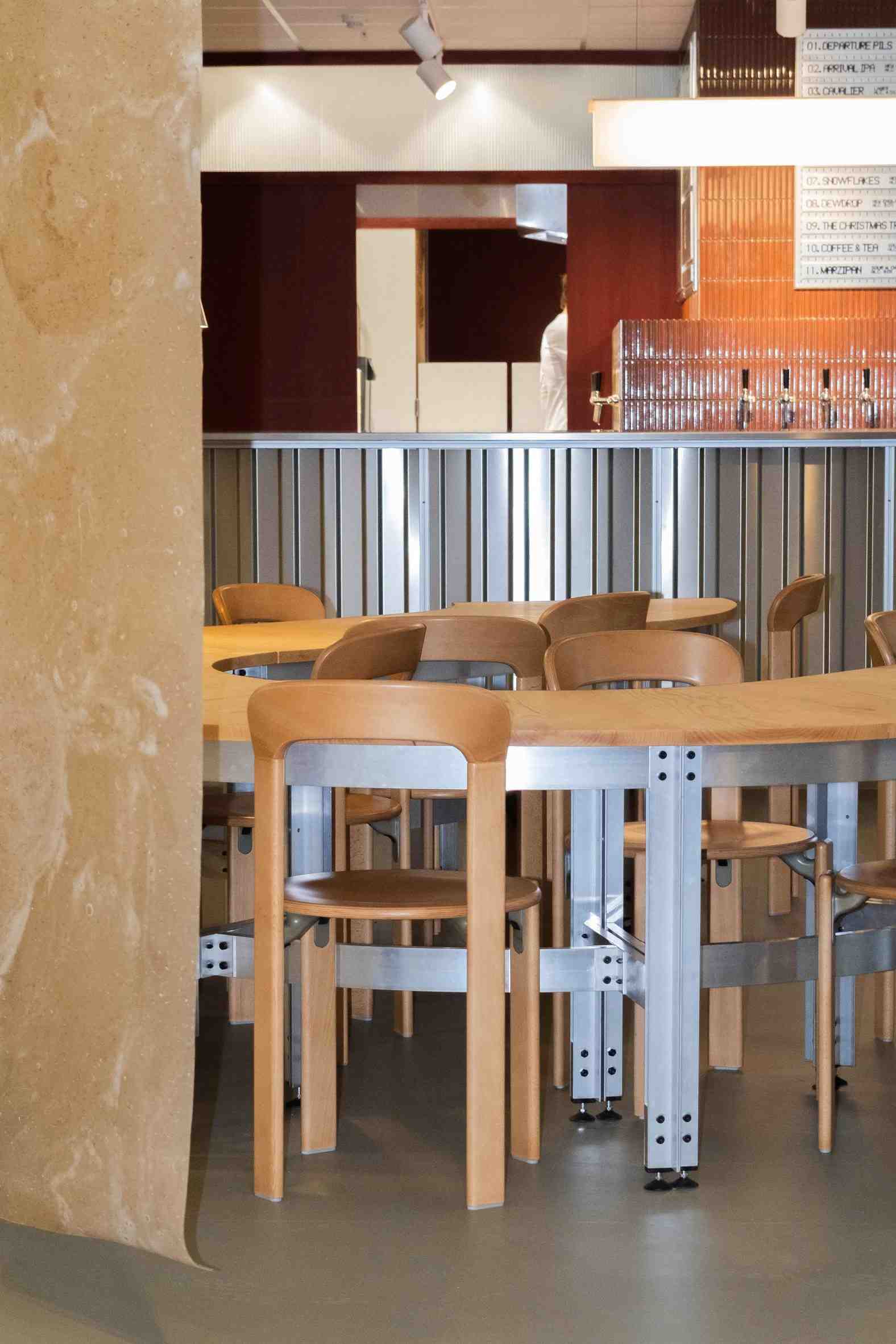
Natural Material Studio, based in Copenhagen, has skillfully crafted swirling panels using spent grain obtained from beer production for a restaurant affiliated with the local ABEN brewery. Under the guidance of designer Bonnie Hvillum, the studio transformed surplus beer from ABEN brewery into thick, semi-translucent, and semi-rigid rectangular panels. Know more about it on SURFACES REPORTER (SR).

Under the guidance of designer Bonnie Hvillum, the studio transformed surplus beer from ABEN brewery into thick, semi-translucent, and semi-rigid rectangular panels.
The process began with handling the mask, referring to the small grains left over from the beer production process. Extracted initially as a wet pulp, the mask was naturally dried over a few days, resulting in a lighter colour, ranging from beige to a golden hue. Once dried, the studio ground the grains into various particle sizes, a crucial step for both the technical qualities and the distinctive swirly appearance of the final material. The smaller particles coloured the material, while the coarser ones created patterns, giving a visual representation of the material’s composition.

. Slimming down the panels from the original 5mm thickness ensured efficient water extraction during casting.
After treating the dried grains, the team combined them with Procel, a home-compostable, protein-based bioplastic with natural softener and chalk, developed by the studio. The team then hand-cast the mask and Procel mixture into straight sheets up to three meters in length, forming the final panels. The hand-crafted technique allowed for precise application of the mask, resembling paint, while also accommodating the organic material motions during the casting process. According to the studio, a balance between human gestures and the material’s natural flow is drawn in the final sheets.

These innovative beer-based panels showcase the intersection of sustainable design and creative craftsmanship.
The team took special care to prevent fermentation during the natural drying process, given the grains’ prior processing in beer production. Slimming down the panels from the original 5mm thickness ensured efficient water extraction during casting. Installed as decorative space dividers at Copenhagen Airport’s ABEN restaurant and bar, featuring interiors by local studio Spacon & X, these innovative beer-based panels showcase the intersection of sustainable design and creative craftsmanship.
Image credit: Jonas Pryner and Natural Material Studio